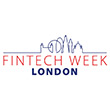Turkland Bank adopts Infosys core banking tools
Turkish bank Turkland has installed new core banking, CRM and treasury systems from Infosys – the first time a Turkish bank has implemented an externally developed core banking system according to the firm.
Turkland Bank was originally set up in 1985 as the Istanbul branch of the Bank of Bahrain and Kuwait. In 1991, T-Bank became independent; today its owners are Jordan’s Arab Bank and Lebanon’s BankMed, each with a 50% stake.
The bank has 27 branches, mostly in Turkey’s major commercial centres, and around 500 staff. T-Bank offers corporate, private and retail banking services to its customers in Turkey; the new core banking system was intended to help the bank roll out products faster and improve its customer service.
“A best-in-class technology platform is imperative for growth,” said Dincer Alpman, chief executive at T-bank. “T-bank is pleased to have pioneered the first full-fledged core banking implementation in Turkey with the globally recognised solution of Infosys Finacle and flawless project management from Cedar Consulting. The successful roll-out of this platform will augment our vision for delivering quality products and services to our customers.”
The Finacle core banking system was rolled out simultaneously across the bank’s network of branches. The bank says that one of the central pillars of the new system is that it was localised to meet local market needs in Turkey. Funds transfer and clearance, transactional security and multi-currency support were all adapted to Turkey and the Turkish language.
Turkey has achieved considerable economic success in recent years, with powerful GDP growth (9.5% in 2011) underpinning an influx of foreign investment and the rapid adoption of modern technology in finance, communications and the wider economy. On the stock markets, a strong IPO pipeline, including the listing of companies such as major Turkish airline Pegasus in May, are prompting strong inflows from both Turkish institutional investors and foreign investors, driving up the €215 billion market capitalisation of the Istanbul Stock Exchange.
Government plans to turn Istanbul into an international financial centre are well advanced, with a prospective merger of the ISE with derivatives exchange TurkDex and the Istanbul Gold Exchange on the cards. Meanwhile, an estimated 60-70 amendments to the country’s capital markets law currently being worked through by the Turkish Capital Markets Board are also helping to make the country’s capital markets more efficient and more attractive to international investors.
Delegates at TradeTech in London earlier this month commented on the positive outlook for Turkey, with Alexis Chryssochoides, head of prop trading and product development at Eurobank Equities, noting the country’s recent upgrading by several credit ratings agencies and the arrival of new, technologically advanced players on the stock market.
“There are a lot of algos entering the market,” added Hakan Ozsoy, assistant general manager at Eczacibaşi Asset Management. “Three years ago, algorithmic trading was less than 1% of the market. Now it’s closer to 5%, and I expect to see algos account for 10-20% of activity in the next five years. That’s to the benefit of everyone.”
Meanwhile in April, Turkish operator Turkcell and SIM card and mobile security solutions provider Gemalto partnered to integrated the country’s public transport card Urfakart into Turkcell’s mobile wallet. As a result, customers using Turkcell Wallet are able to make contactless payments for transport services in the Sanliurfa province using their mobile phones. In addition, they can check and top up their Urfakart balances without having to go to a payment point.
Turkcell has also struck deals with the Turkish Football Federation (TFF) to sell match tickets to fans via their mobiles across the country, and with local bank Akbank to introduce an NFC-based mobile wallet service incorporating location-based elements.
Philippe Carré, global head of connectivity at financial technology provider SunGard, refers to Turkey as the ‘Eurasian Tiger’ based on its advancing economic growth and technological progress.
“Turkey has a decreasing public debt ratio, the government has done a good job of reining in inflation, GDP growth has been amazing,” he said. “In the last few years we have gone from selling Turkey to clients coming to us asking for it. The airport where I used to land in Istanbul is now the fire engine shed. They’ve built a huge new one, and that’s emblematic of the changes we see in the country. Turkey is a very stable country with a very strong appeal on a number of levels.”












































